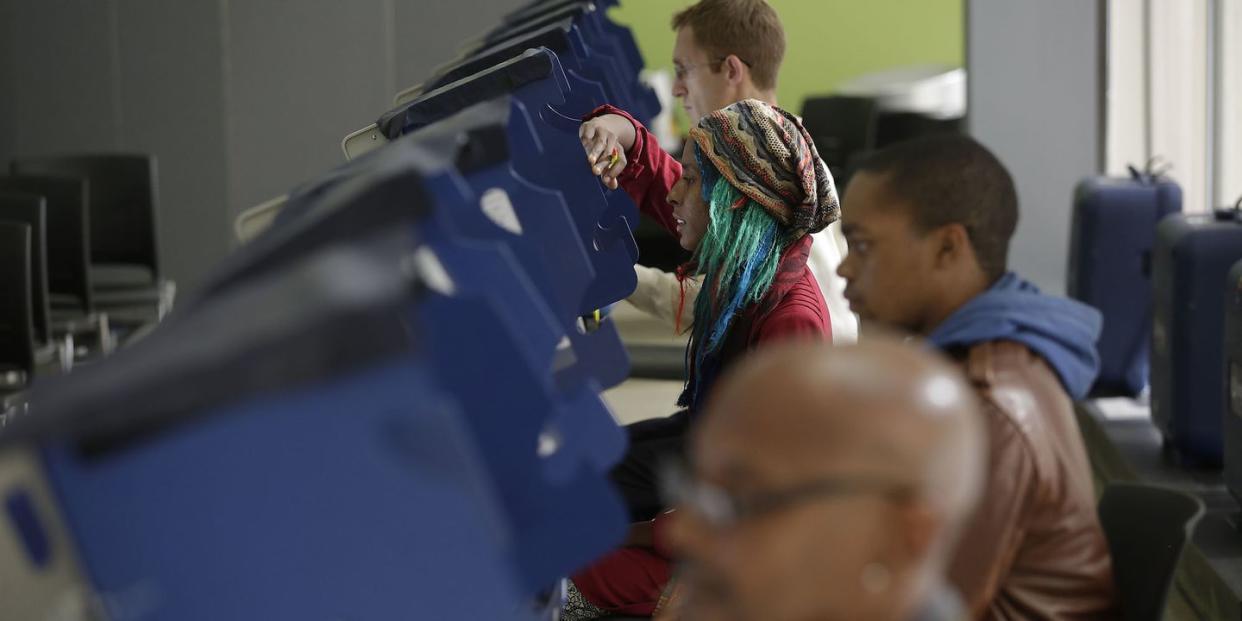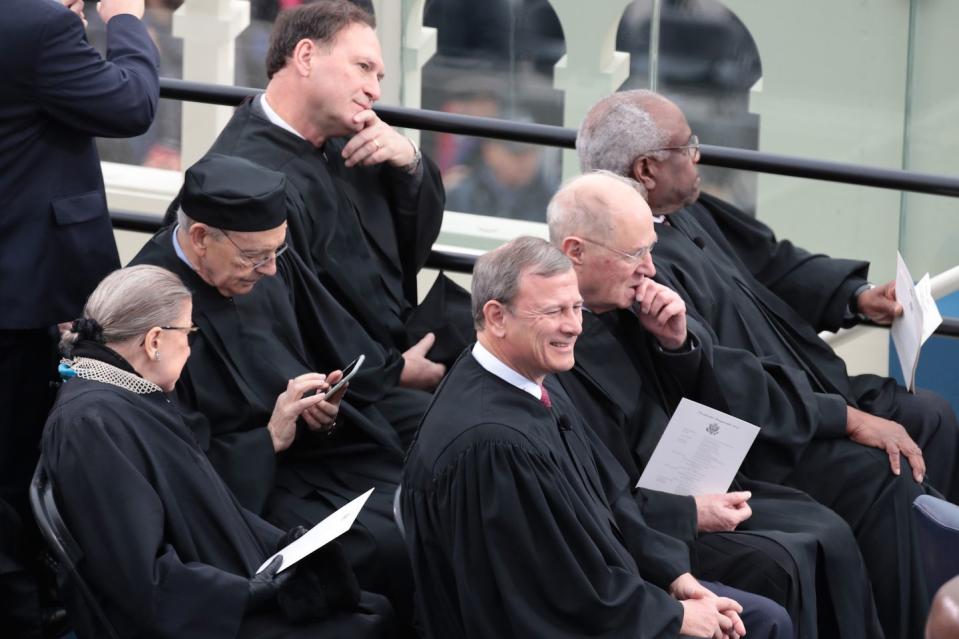Supreme Court Throws Voter-Suppression Alley-Oop

And while we’re on the subject of disenfranchisement and voter suppression, Chief Justice John Roberts and his 5-4 majority on Monday stayed true to the goal of his entire career, and to his declaration of the Day of Jubilee, when the Supreme Court upheld an Ohio process by which a voter’s registration is cancelled if that voter has not voted in two years and has not responded to a letter confirming that they are still eligible to vote. The ruling in this case, Husted v. A. Philip Randolph Institute, states that the Ohio procedure does not violate federal law. Justice Samuel Alito delivered the opinion of the Court, so you know how that goes.
Nobody denies that this law is aimed at “purging” voter rolls, and statistics show that minority voters are significantly disadvantaged by Ohio’s system. This, of course, is the whole point, and the decision of the court likely will be a big old starter’s pistol for state officials to start playing all kinds of mischief with their voting rolls. From NPR:
Justice Samuel Alito wrote the majority opinion with the court's other conservatives signing on. The first line of the opinion lays out evidence for why Alito sees the need to clean up voter rolls. "It has been estimated that 24 million voter registrations in the United States-about one in eight-are either invalid or significantly inaccurate," Alito writes, citing a Pew Center on the States study. "And about 2.75 million people are said to be registered to vote in more than one State." This was the same study that incoming Trump White House officials cited - misleadingly- to make the case that voter fraud was occurring and immigrants in the U.S. illegally were voting.
Glad to know everyone’s on the same page there. Alito’s opinion is classic conservative hair-splitting.
Respondents argue (and the Sixth Circuit held) that, even if Ohio’s process complies with subsection (d), it nevertheless violates the Failure-to-Vote Clause-the clause that generally prohibits States from removing people from the rolls “by reason of [a] person’s failure to vote.” §20507(b)(2); see also §21083(a)(4)(A). Respondents point out that Ohio’s Supplemental Process uses a person’s failure to vote twice: once as the trigger for sending return cards and again as one of the requirements for removal. Respondents conclude that this use of nonvoting is illegal. We reject this argument because the Failure-to-Vote Clause, both as originally enacted in the NVRA and as amended by HAVA, simply forbids the use of nonvoting as the sole criterion for removing a registrant, and Ohio does not use it that way. Instead, as permitted by subsection (d), Ohio removes registrants only if they have failed to vote and have failed to respond to a notice.
Leave aside the fact that, again, the Ohio system is a solution in search of a problem to solve. This is more evidence that on voter suppression, as on so many things these days, the Court’s conservative majority-which, on this issue, must be said to include Justice Anthony Kennedy-operates in a fantasy world of its own creation in which nobody’s real-world political motives actually exist. Alito’s opinion is bloodless pedantry about what he perceives to be a contradiction in the two federal laws under discussion in the case.

In a separate dissent, Justice Sonia Sotomayor took a step into the real world, as well as a peek into the actual future that this decision makes inevitable.
“Communities that are disproportionately affected by unnecessarily harsh registration laws should not tolerate efforts to marginalize their influence in the political process, nor should allies who recognize blatant unfairness stand idly by. Today’s decision forces these communities and their allies to be even more proactive and vigilant in holding their States accountable and working to dismantle the obstacles they face in exercising the fundamental right to vote.”
Jon Husted, the name on this case, is currently running for governor of Ohio. Since Husted became Ohio’s secretary of state in 2011, the state has purged two million voters from its rolls, more than any other state. But it didn’t begin with Husted, either. In 2004, as the invaluable Ari Berman explains, the state Republican Party sent out mailings to over 200,000 newly registered voters. When 35,000 of these were sent back as undeliverable, the Ohio GOP promptly tried to have those people purged. (That was OK, though, because Ohio wasn’t important in that year’s presidential contest.) Husted, I guarantee you, will brag about this ruling, and the voter suppression it now condones, during his campaign. The Day of Jubilee may never end.
Respond to this post on the Esquire Politics Facebook page here.
You Might Also Like

